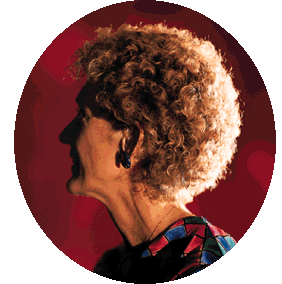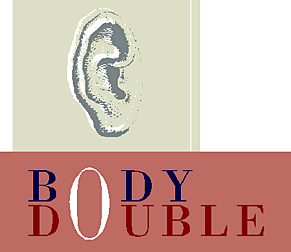

As Catharine Talbot-Lawson's lifelong hearing loss faded toward complete deafness, her world was silently turned upside down.
A nurse of 28 years, Talbot-Lawson was forced to give up her job in the UW Medical Center's intensive care unit because she could no longer hear the patient alarms. She wasn't able to talk on the telephone with her parents or other out-of-town friends and relatives. And, though it broke her heart, she avoided taking care of her grandchildren by herself.
"I was afraid to be with them alone," she says. "I would constantly worry if they were in the next room that they might be hurt and crying and I wouldn't be able to hear them."

Over the years, Talbot-Lawson used stronger and stronger hearing aids to maintain a successful career and pursue hobbies like sky diving. But by 1995, the hearing aids were no longer effective. She was faced with the choice of taking disability retirement and learning to live with deafness or getting a cochlear implant--a prosthetic replacement for the inner ear--to restore some of her hearing.
Talbot-Lawson received her implant a year ago and sings its praises in sweet notes that even she can now hear.
"The quality of my life has improved so vastly; I feel like I'm part of the world of the living again," she says.
But Talbot-Lawson knows her world could slip into silence again. Over time, the cochlear implant may be crippled by her body's own defense system. Her cells will identify the implant as a foreign object and they'll wall it off with scar tissue, which eventually could block the electronic signal that stimulates hearing.
Similar problems affect pacemakers, vascular grafts, artificial eye lenses and other medical implants that save or improve the lives of millions of people every year but may provide only temporary relief. The body's natural reaction to foreign materials too often disrupts the performance of medical implants and requires another operation or other medical attention.
A group of engineers, scientists and doctors at the UW aims to change that. Armed with a five-year, $12.4 million grant from the National Science Foundation, they are trying to develop a new generation of medical implants that mimic the biology of the body parts they replace.
Out of 117 proposals, the University of Washington Engineered Biomaterials (UWEB) project was one of only four engineering research centers funded this year by the National Science Foundation. The UW joins an elite group of 25 universities nationwide selected to lead ground-breaking research in critical areas of discovery, an achievement applauded by new Engineering Dean Denice Denton.
The project is expected to last 11 years with potential funding of $25 million from the National Science Foundation and more than $30 million from industry partners, private foundations and the University.
The Makings for a Revolution in Medical
Technology
A New Generation of
Engineers
Turning Off the Body's
Defense
One Molecule at a Time
Denice Denton: A New Kind of Dean
Send a letter to the editor at columns@u.washington.edu.